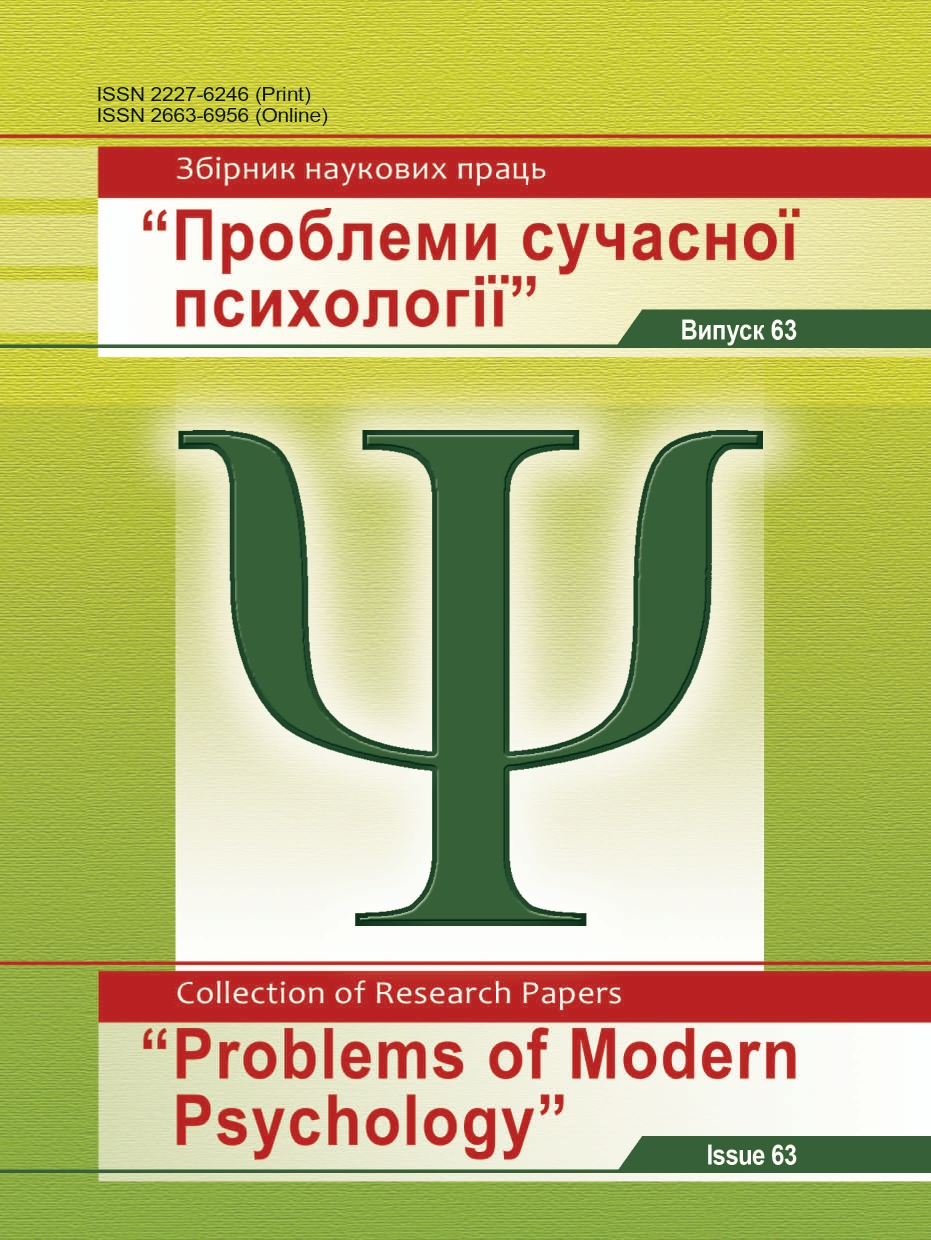Functions of Facilitative Interaction as a Predictor of Developing Pupils’ Soft Skills
DOI:
https://doi.org/10.32626/2227-6246.2024-63.137-158Keywords:
facilitation, facilitative interaction, functions of facilitative interaction, soft skills, empathy, respect, sincerity, creativity, conformity, curiosity, anxiety, locus of control, cooperation, recognition of value, acceptanceAbstract
The purpose of the article is: to show the content of facilitative interaction; to present the functions of facilitative interaction; to describe our experimental research at secondary schools and to describe functions of facilitative interaction as the predictor of developing pupils’ soft skills.
Methods of the research. The following theoretical methods of the research were used to solve the tasks formulated in the article: a categorical method, structural and functional methods, the methods of the analysis, systematization, modeling, generalization. Also, in our research we used empirical methods, such as statement experiment.
The results of the research. According to the results of our research we proposed such functions of facilitation: the function of stimulation; update function; the function of forming the sovereignty of the student’s personality; the function of managing the educational process; the function of organizing the process of interaction; the function of providing a creative educational environment.
Conclusions. We proved empirically, that functions of facilitative interaction in the pedagogical process at secondary schools are real predictors of developing pupils’ soft skills, such as: academic achievements, self-concept, attitude to school, creativity, conformity, curiosity, anxiety, locus of control, cooperation, recognition of value, acceptance, trust, the possibility to create the environment, the ability to participate in creative types of the activities, expressiveness, naturalness, empathetic listening, the ability to make a climate of liberation, stimulating self-initiated personal growth. Also, we proposed three groups of soft skills of such kind of emotive teaching, which can be called facilitative soft skills: empathy, respect, sincerity.
Downloads
Published
How to Cite
Issue
Section
License
Copyright (c) 2024 Khupavtseva Nataliia, Simko Ruslan

This work is licensed under a Creative Commons Attribution-NonCommercial 4.0 International License.
Copyright
The Editorial Board has the full right to publish original scientific papers containing results of theoretical and experimental research works which are not currently subject to review for publication in other scientific editions. The Author shall transfer to the editorial board of the Collection the right to spread the electronic version of the paper, as well as the electronic version of the paper translated into English (for papers originally submitted in Ukrainian and Russian) by all kinds of electronic means (placement at the official website of the Collection, electronic databases, repositories etc).
The Author of an article reserves the right to use materials of the paper, without approval with the editorial board and the founders of this Collection: a) partially or fully, for educational purposes; b) for writing own dissertation papers; c) for preparation of abstracts, conference reports and presentations.
The Author of an article can place electronic copies of the paper (including the final electronic version downloaded from the official website of the Collection) at:
- personal web resources of all Authors (websites, webpages, blogs etc.);
- web resources of the institutions where the Authors are employed (including electronic institutional repositories);
- non-profit public access web resources (for example, arXiv.org).
But in all cases, it is obligatory to have a bibliographic reference to the paper, or a hyperlink to its electronic copy placed at the official website of this Collection.






